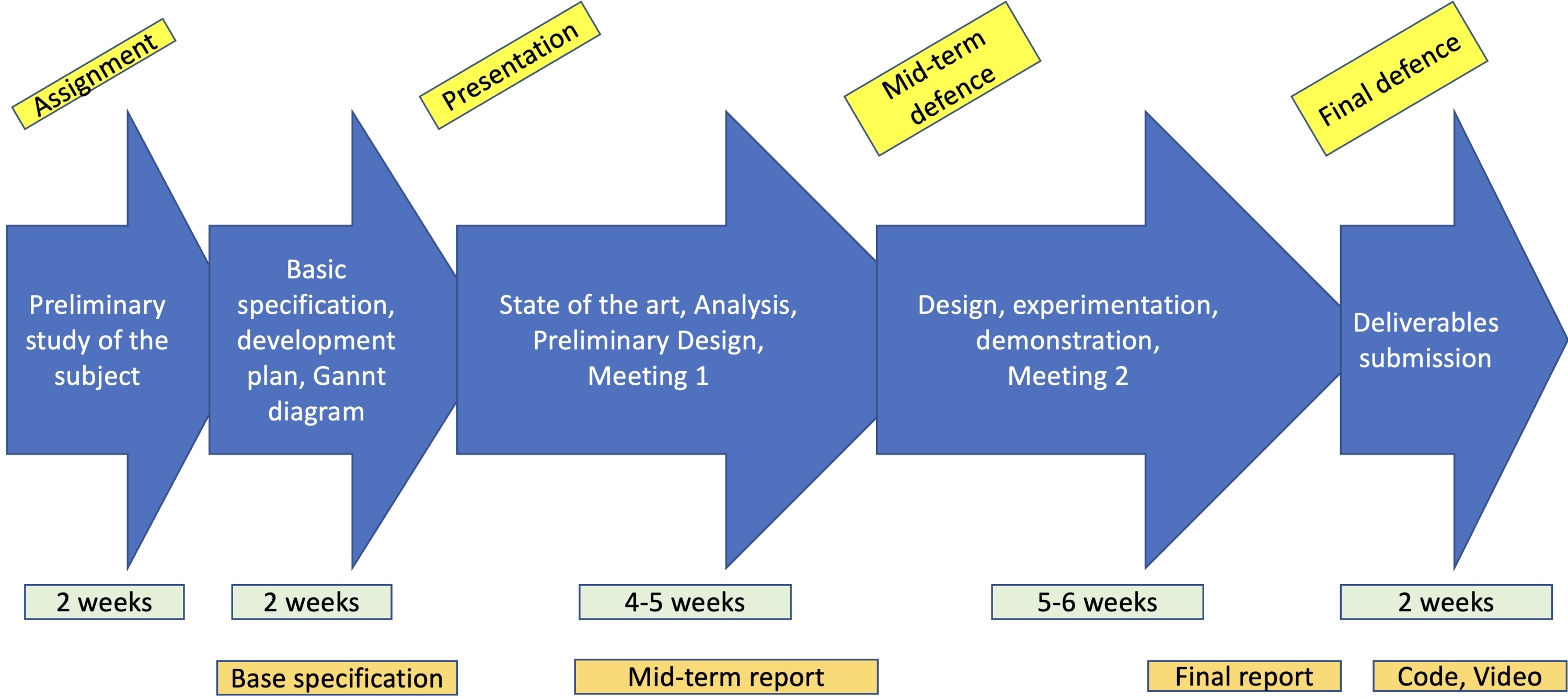The advanced projects assignments this year are:
- LORA: LoRaWAN testbed deployment and monitoring
Tuteurs: Stephane Rovedakis (Cnam), Alessandro Aimi (Cnam/Orange)
Student: Ali Awarkeh - 5G: 5G testbed deployment and monitoring
Tuteurs: Chi-Dung Phung (Cnam), Stefano Secci (Cnam)
Students: David Kule, Marwa Ali - Comparative performance evaluation of a speech recognition application
on different development boards (BeagleBone Black, MAiX BiT, ESP32, Raspberry Pi).
Tuteur: Sami Taktak (Cnam)
Student: Zifeng Zhang - LNrouting: Learning-based routing of Bitcoin transactions in Lightening Network
Tuteur: Julien Wendling (Stackinsat), Stefano Secci (Cnam)
Students: Masoud Baharlouei, Jeongku Choi - I2PNYM: Experimental comparison between I2P and NYM for anonymous VPNs
Tuteur: Yacine Benchaib (Cnam)
Student: Mohamed Rhaouti - LCMNFV: Emulating Lifecycle management of Virtualized network functions – demonstration of an ETSI NFV management emulator
Tuteurs: William Diego (Orange), Nour El-Houda Yellas (Cnam) - P4UPF: demonstration of a P4-based User Plane Function
Tuteur: Stefano Secci, Yacine Benchaib (Cnam). - SDRAN: Predictive MPTCP scheduler in Open-RAN (AI@EDGE european project)
Tuteurs: Chi-Dung Phung (Cnam), Stefano Secci (Cnam)
Student: Anh Khoa Dang - TFX: Demonstration of TFX for in-network AI data pipelining
Tuteur: Nour El-Houda Yellas (Cnam), Stefano Secci (Cnam)
Student: Anas Hattay, Manel Siala - P4CODEL: CODEL vs ARQ comparison.
Tuteur: William Diego (Orange), - iRED: “Improving the DASH QoS by dropping packets in programmable data planes”, demonstration of a research paper.
Tuteur: Mario Patetta (Cnam)
Student: Zisen Xu - eMPTCP: Towards the Full Extensibility of Multipath TCP with eMPTCP, demonstration of a research paper by Bin Yang, Dian Shen, Junxue Zhang, Fang Dong, Junzhou Luo, John. C.S. Lui
Tuteur: Chi-Dung Phung (Cnam), Stefano Secci (Cnam)
Student: Hussein Hamdouna - NSLKDD: Network anomaly detection using supervised machine learning algorithms against the NSLKDD dataset
Tuteurs: Selma Boumerdassi, Christophe Maudoux (Cnam)
Student: Farnaz Ebrahimishad - LoRaWAN testbed integration to an automation framework (ONAP or Neph.IO)
Tuteur: Stephane Rovedakis (Cnam)
Student: Hussein Khalil - MAGMA: demonstration of the MAGMA framework
Tuteur: Stephane Rovedakis (Cnam)
Student: Mohammad Rizk - Joint 5G and MEC function placement algorithms and simulations. Extension of article “Function splitting, isolation and placement trade-offs in network slicing“.
Tuteurs: Stefano Secci, Nour El-houda Yellas, Safia Kedad-Sidoum.
An evaluation committee, including esteemed industry members (Vania Conan from Thales, William Diego Maza from Orange) is in charge of evaluating the projects at the different steps of development.
The overall planning (depicted below) include different steps, with written deliverables in base specifications and requirements, a mid-term report on the state of the art and analysis, and a final report document the experimental setting, and final demonstration videos and files supporting reproducibility of the results obtained.

2022 Advanced Projects

